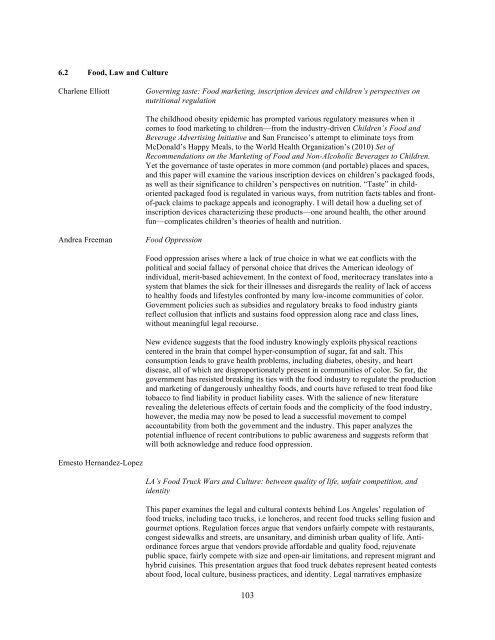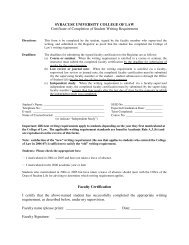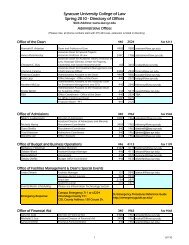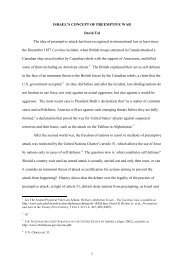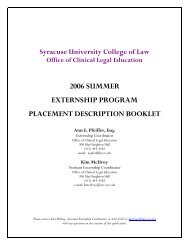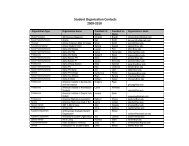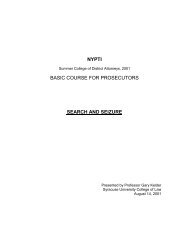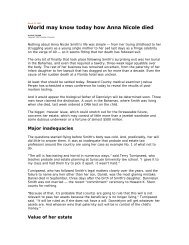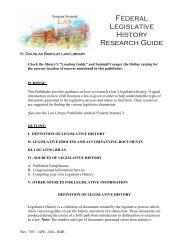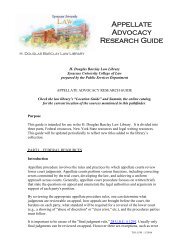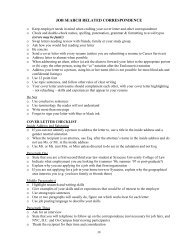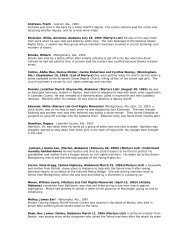2011 Conference Program (PDF) - Syracuse University College of Law
2011 Conference Program (PDF) - Syracuse University College of Law
2011 Conference Program (PDF) - Syracuse University College of Law
You also want an ePaper? Increase the reach of your titles
YUMPU automatically turns print PDFs into web optimized ePapers that Google loves.
6.2 Food, <strong>Law</strong> and Culture<br />
Charlene Elliott<br />
Governing taste: Food marketing, inscription devices and children’s perspectives on<br />
nutritional regulation<br />
The childhood obesity epidemic has prompted various regulatory measures when it<br />
comes to food marketing to children—from the industry-driven Children’s Food and<br />
Beverage Advertising Initiative and San Francisco’s attempt to eliminate toys from<br />
McDonald’s Happy Meals, to the World Health Organization’s (2010) Set <strong>of</strong><br />
Recommendations on the Marketing <strong>of</strong> Food and Non-Alcoholic Beverages to Children.<br />
Yet the governance <strong>of</strong> taste operates in more common (and portable) places and spaces,<br />
and this paper will examine the various inscription devices on children’s packaged foods,<br />
as well as their significance to children’s perspectives on nutrition. “Taste” in childoriented<br />
packaged food is regulated in various ways, from nutrition facts tables and front<strong>of</strong>-pack<br />
claims to package appeals and iconography. I will detail how a dueling set <strong>of</strong><br />
inscription devices characterizing these products—one around health, the other around<br />
fun—complicates children’s theories <strong>of</strong> health and nutrition.<br />
Andrea Freeman<br />
Food Oppression<br />
Food oppression arises where a lack <strong>of</strong> true choice in what we eat conflicts with the<br />
political and social fallacy <strong>of</strong> personal choice that drives the American ideology <strong>of</strong><br />
individual, merit-based achievement. In the context <strong>of</strong> food, meritocracy translates into a<br />
system that blames the sick for their illnesses and disregards the reality <strong>of</strong> lack <strong>of</strong> access<br />
to healthy foods and lifestyles confronted by many low-income communities <strong>of</strong> color.<br />
Government policies such as subsidies and regulatory breaks to food industry giants<br />
reflect collusion that inflicts and sustains food oppression along race and class lines,<br />
without meaningful legal recourse.<br />
New evidence suggests that the food industry knowingly exploits physical reactions<br />
centered in the brain that compel hyper-consumption <strong>of</strong> sugar, fat and salt. This<br />
consumption leads to grave health problems, including diabetes, obesity, and heart<br />
disease, all <strong>of</strong> which are disproportionately present in communities <strong>of</strong> color. So far, the<br />
government has resisted breaking its ties with the food industry to regulate the production<br />
and marketing <strong>of</strong> dangerously unhealthy foods, and courts have refused to treat food like<br />
tobacco to find liability in product liability cases. With the salience <strong>of</strong> new literature<br />
revealing the deleterious effects <strong>of</strong> certain foods and the complicity <strong>of</strong> the food industry,<br />
however, the media may now be posed to lead a successful movement to compel<br />
accountability from both the government and the industry. This paper analyzes the<br />
potential influence <strong>of</strong> recent contributions to public awareness and suggests reform that<br />
will both acknowledge and reduce food oppression.<br />
Ernesto Hernandez-Lopez<br />
LA’s Food Truck Wars and Culture: between quality <strong>of</strong> life, unfair competition, and<br />
identity<br />
This paper examines the legal and cultural contexts behind Los Angeles’ regulation <strong>of</strong><br />
food trucks, including taco trucks, i.e loncheros, and recent food trucks selling fusion and<br />
gourmet options. Regulation forces argue that vendors unfairly compete with restaurants,<br />
congest sidewalks and streets, are unsanitary, and diminish urban quality <strong>of</strong> life. Antiordinance<br />
forces argue that vendors provide affordable and quality food, rejuvenate<br />
public space, fairly compete with size and open-air limitations, and represent migrant and<br />
hybrid cuisines. This presentation argues that food truck debates represent heated contests<br />
about food, local culture, business practices, and identity. Legal narratives emphasize<br />
!<br />
103


